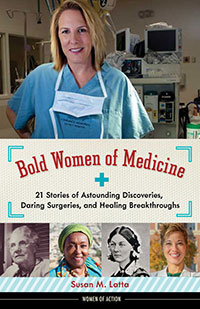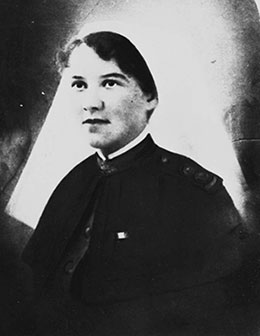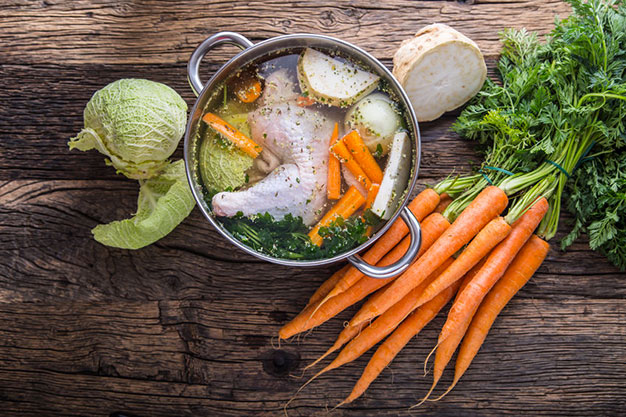It is cold up here in the north country, so lately my thoughts have turned to creating a steaming pot of soup. For soup, you have to hit the highlights; the chicken, onions, a carrot or two. If you toss in too many ingredients, nothing will stand out and the result will be a muddled mess. You must also have a special ingredient. The quick taste that says, mmm, what is that? A dash of nutmeg? A spoonful of caraway seed?
 When I wrote the short profiles in Bold Women of Medicine: 21 Stories of Astounding Discoveries, Daring Surgeries, and Healing Breakthroughs, I realized they required a similar focus. I needed the highlights; birth, family, education. The profiles also needed that special something to stand out.
When I wrote the short profiles in Bold Women of Medicine: 21 Stories of Astounding Discoveries, Daring Surgeries, and Healing Breakthroughs, I realized they required a similar focus. I needed the highlights; birth, family, education. The profiles also needed that special something to stand out.
Other than biographical assignments in school, I hadn’t written many biographies. But often it is in the doing that we learn. When I researched and wrote my (looking for a home) picture book biography Step by Step: The Story of Elizabeth Kenny’s Fight to Treat Polio, I learned a few lessons.
I had been fascinated by Sister Kenny ever since my father’s stay at the Sister Kenny Institute after his stroke. Who was this brash woman who had founded the institute famous in Minneapolis? Not just Minneapolis, for in fact, she was once voted the most influential woman in America, beating out Eleanor Roosevelt.
Researching and writing the life of someone famous can be daunting. I didn’t have the space to write about everything in her life, and I didn’t want to bore young readers with uninteresting facts.
The Minnesota Historical Center’s Gale Family Library held her secrets in the form of letters, cards, and photographs packed into boxes. Seeing Sister Kenny’s handwriting helped me to imagine her sitting at a desk composing a letter. The photographs let me look into her simultaneously kind and determined eyes. It was an odd sense of the past, her past, coming to life. And yet, since she died in 1952, I knew more about her fate (and legacy) than she did.
Sister Kenny eventually became the sample chapter I included in my proposal for Bold Women of Medicine. The Chicago Review Press Women of Action Series introduces young adults to women and girls of courage and conviction.
As I sifted through these lives I wondered, what spurred these women on to a life in medicine?
Within the framework of the women’s lives (birth, education, career, and family), I began to see patterns leading them to medicine. My goal was to keep the story moving forward.

For example, Sister Kenny realized success with one patient inflicted with cerebral palsy, causing paralysis. She said, “Although my special life’s work had not yet really begun, I always think of this period as my starting point.” Discovering each woman’s motivation helped me to create a tighter focus. In other words, I limited the ingredients I placed into my soup pot and at the same time found that special something.
What factors influenced Sister Kenny to practice medicine? Was it an event, a person, or a need to be helpful? I am a linear thinker (sometimes a hindrance) but in this case, point A of a woman in medicine’s life often led to point B. Sometimes I had to backtrack much like you do when following a hiking trail, and often when I backtracked I discovered another, more intriguing part of her story.
Research is a tricky beast no matter what the subject is, and the most difficult part of research is knowing when to quit. Not everything from your fridge must be a part of your dinner.
I searched for anecdotes that would interest a young reader. What happened in Sister Kenny’s childhood that shaped her interest in science? What character traits did she possess that led to success or failure? What impact did she have on history? Pulitzer Prize winning writer David McCullough says, “I believe very strongly that the essence of writing is to know your subject…to get beneath the surface. You have to know enough to know what to leave out.”
I read as much as I could on each woman, until I found the story and pattern with which to begin. Each of these women lived full lives, and in the cutting of some of their life events I strengthened the flavors, highlighting their powers of hope, education, and perseverance. And as I write this on a cold day, it’s time to pull out the pot and figure out the best ingredients for my soup!

